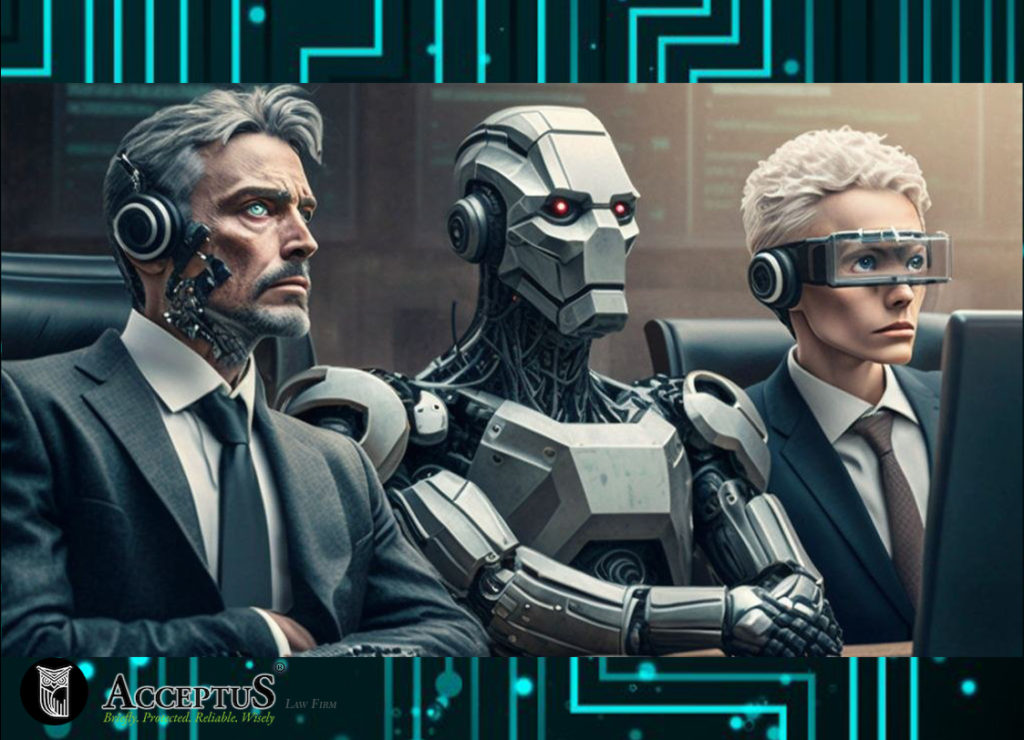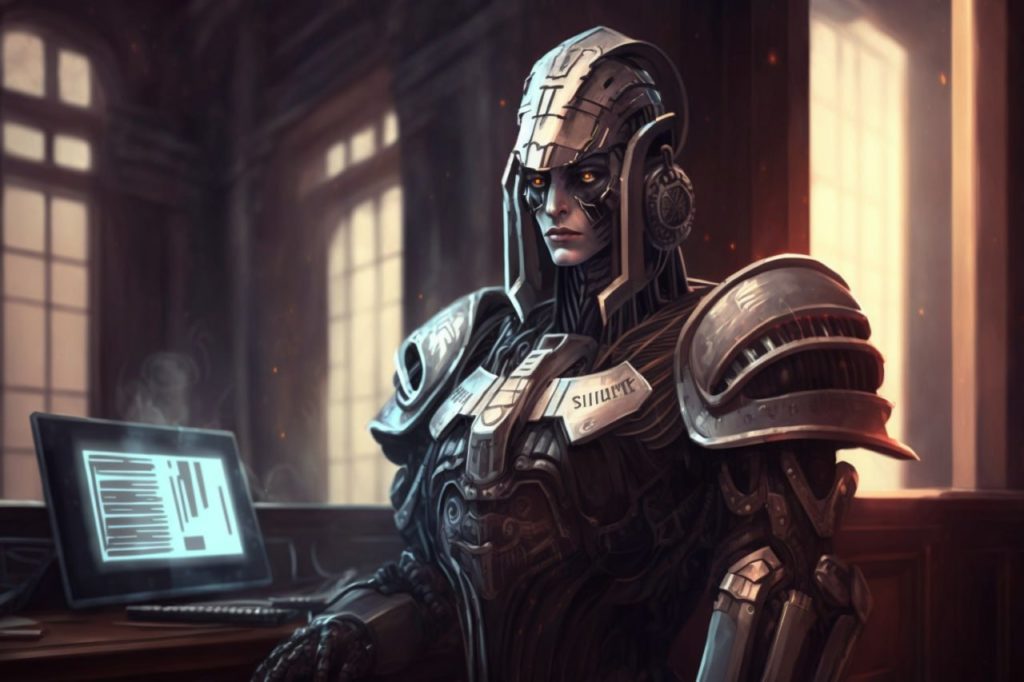
In recent years, in many countries of the world, the digitalization of many sectors of the economy and social spheres is gaining momentum. And Uzbekistan is no exception. Without detracting from the common benefits known to many of us from digitalization (convenience, simplicity, accessibility, speed, reduction of the notorious “human factor” and simplification of document flow, reduction of ground for corruption, etc.).
Everything would be fine, apart from, of course, what awaits humanity with the ill-conceived digitalization of a number of areas of its [humanity’s] activity, because the scenario of the «Terminator» multimedia franchise, namely its third part «Rise of the Machines» (2003) in the global sense is just around the corner when humanity, and at first certain branches of its activity, can become «digital slaves».
More and more often we hear, read and see about the digitalization of, for example, judicial activities, activities in public administration, which in itself is not bad and can even significantly increase the effectiveness of communication between the participants in these relations, and as a result, satisfy the relevant social and other needs, simplify interaction and bring a number of other benefits. Again, if everything is thought out in this direction, and no matter how much you would like the opposite – slowly, having calculated all the technical aspects of management, interaction, storage, distribution of information, «manual control» in case of failures in the system and power supply, financing the creation of large data -centers and, of course, the obligatory and strict implementation of one of the central aspects in these matters – the observance of the international and national legal rights of all subjects of digitalization, namely, such as the state, corporations, non-governmental commercial and non-profit organizations and, of course, citizens.
Here and in other similar cases, a number of questions arise about the observance of such important and fundamental legal aspects as respect for human rights, confidentiality (lawyer secrecy) of communication between the client and the lawyer (in this case there is a third party – the owner and staff of the startup), equal rights , access and opportunities to justice for all participants in the process. The last one is really hard. In many countries, they are gradually trying to use / test AI in judicial and legal activities, in particular, in the activities of a lawyer, but for some reason they are in no hurry to make an «AI-prosecutor», «AI-court» (the latter was experimentally tested in Russia several years ago), «AI-cop» and others, which raises the suspicion that in some states and societies «lawyers» are regarded as «laboratory material». And besides, the increase in a certain «need» for AI does not mean that it must be implemented in all areas of human activity indiscriminately.
For example, according to «NYPost», «NYScientist» and «PRAVMIR» and a number of other information sources, in the recent future in the United States, a private company (startup) «DoNotPay» is launching the world’s first «robot-lawyer» will take part in a real court hearing and will help the respondent to challenge the fine for violating traffic rules, using the artificial intelligence (AI) program on the smartphone of the violator of traffic rules, and if the participant in the experiment is recognized, he will pay all fines imposed by the court (for more details, see «NYPost», «NYScientist» here: ‘Robot lawyer’ powered by AI will help fight speeding ticket as it takes first case in court (nypost.com), AI legal assistant will help defendant fight a speeding case in court | New Scientist & «ПРАВМИР» here: Впервые в истории клиента в суде будет защищать “робот-адвокат” | Правмир (pravmir.ru)) and here https://www.ixbt.com/news/2023/02/05/sudja-iz-kolumbii-ispolzoval-chatgpt-pri-vynesenii-reshenija.html.
For example, the position of our law firm regarding AI in judicial and legal activities briefly looks like this: «AI in judicial and legal activities that displaces a person is unacceptable in principle, and if it is still introduced, then in relation to all (and not just lawyers) physical participants in law enforcement and judicial and investigative activities, starting from the inspector of the traffic police, ending with the head of the judicial body of the country (without exception), in order to avoid «procedural preponderance», the destruction of the principle of competition, the destruction of equal opportunities for participants in such relations, and in this case, all judges, prosecutors, investigators, operational workers and other law enforcement officers will have to «hang the form on a hook», and the legal fate, the right to life, freedom, freedom of movement, the right to property and other basic and not only human rights will be decided by the «machine», and we will unquestioningly obey it, thus becoming «digital slaves». The position of the company also looks like with the total digitalization of these subjects of judicial and legal activities.
You don’t have to go far. In the above case, the media materials do not provide details, but nevertheless it is said that the startup «DoNotPay» in case of failure (the client is found guilty of violating traffic rules) will pay all fines. OK, he will pay, but how will a startup and/or its «brainchild» (AI lawyer) «allow» a criminal record (an entry in the registry/system on the application of a court fine) and its negative legal consequences? Not an idle question, agree. Or right there: «What is the legal nature of the subject, i.e. «A- lawyer» in court? Is “it” under current New York State law a full and competent subject of litigation? Here you can definitely answer – No! Just like so far in the world, many experts, lawyers, lawyers, IT engineers and other specialists «broke many spears» on the issue of whom to hold liable in the event of an accident (with property damage, damage to life and / or health of road users ), if the vehicle was controlled by AI (autopilot) and, as you know, a uniform answer and a legal final solution have not yet been found!
There are many branches of human life that, in the opinion of our law firm «Acceptus», in general, and at least in the foreseeable future, should not replace (in whole or in part) natural intelligence with artificial intelligence. For example, in such sectors of the life of society, the state or citizens as: childbirth (childbirth), judicial and law enforcement activities, defense activities and a number of others.
Summing up the above, it is worth noting that if the introduction of AI in judicial and law enforcement activities, of which advocacy is an integral part, will probably not take place soon (on the example of Uzbekistan), then the digitalization of this branch of state activity and the activities of integral civil institutions (in particular, advocacy activity) should be implemented with extreme caution, with full respect for the rights to disseminate personal data about all persons, with no interference in the legal profession by the state and other organizations in any form, with full respect for independence and professional secrecy, and, of course, strict adherence to universally recognized international and national standards of the “Rule of Law” and go from within these industries according to the organizational principle «bottom-up» (independence factor), with reasonable support and assistance from the state, and not vice versa, in a command-administrative manner.
Otherwise, the «procedural/procedural-digital Frankenstein» that is being created can very quickly lead to the opposite (extremely negative) effect, up to unacceptable values and zeroing or “killing” entire branches of legal relations and reducing the level of public confidence in the authorities, and as a result, a decrease in confidence of external partners in the international arena and a negative impact on the investment potential of a subject of international law and leading to difficult to overcome «digital slavery» and complete dependence on regulators (state bodies and large monopoly companies) which, as understood, does not correspond to the provisions of a number of norms of international law in the field of protection of human rights, his rights and freedoms.

Nota bene! This material was written solely in compliance with the provisions of Article 29 of the Constitution of the Republic of Uzbekistan and is not directed against the existing constitutional order, public administration, interstate relations or other manifestations of illegality, does not call for any action and reflects the opinion of the author, does not claim to be «the ultimate truth» and may not coincide with the opinion of those reading and distributing this material and is aimed only at understanding the current processes (on the subject of the material) in the world, region and country.
eng: Photo sources: 9111.ru, https://www.ixbt.com/news/2023/02/05/sudja-iz-kolumbii-ispolzoval-chatgpt-pri-vynesenii-reshenija.html




